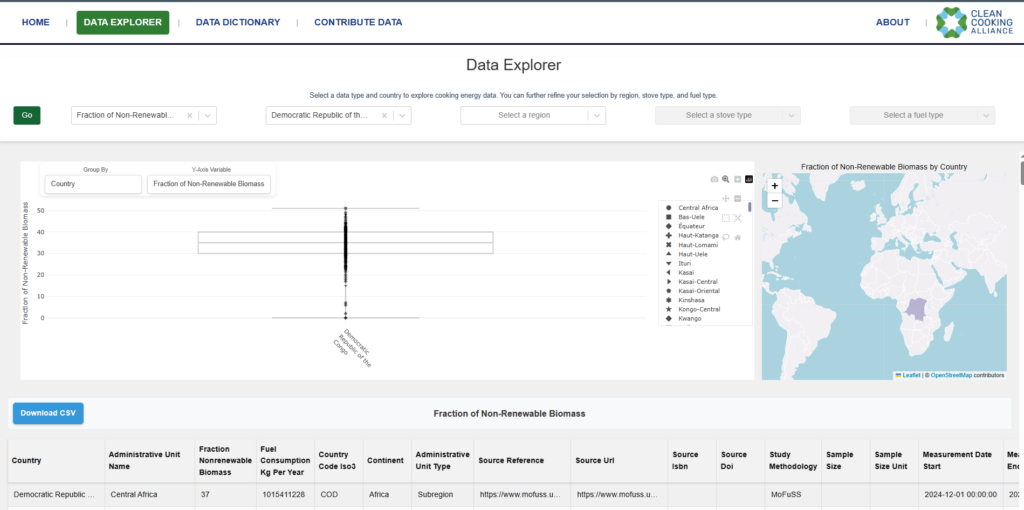CCA Launches Cooking Energy Data Hub to Support New Carbon Projects
WASHINGTON DC, May 28, 2025 — The Clean Cooking Alliance (CCA) launched the Cooking Energy Data Hub – a new, open-access, online platform designed to aggregate and share critical data on household energy use and clean cooking across the globe. The Hub was developed by CCA with funding from Osprey Foundation and implementation support from the Stockholm Environment Institute (SEI).
Now available at www.cookingdata.info, the Hub addresses a longstanding barrier to the rapid development of clean cooking carbon projects: the scattered nature of the data needed for accurately estimating the benefits of clean cooking.

“Carbon finance can significantly bring down the cost of clean cooking solutions for the families around the world who need them most. However, a large amount of complicated, time-consuming, and often costly research is needed to properly design these projects in the first place,” noted Elisa Derby, Senior Director of Climate Impacts and Standards at CCA. “The Cooking Energy Data Hub reduces these challenges by providing real-world disaggregated data, including at the more nuanced sub-national level needed for project inputs, which can be used in designing projects, especially in conjunction with the web version of the CLEAR methodology (currently under development).”
The Hub houses a wide range of datasets, from average fuel consumption rates to stove-specific efficiencies to the fraction of non-renewable biomass. The relevant datasets were identified by consulting with clean cooking carbon project developers and researchers and conducting literature reviews. Researchers, policymakers, carbon project developers, standards bodies, ratings agencies, validation verification bodies, and others can now use this data to perform feasibility studies, benchmark projects against validated data, and design initiatives that help households access the energy they need.
“This platform is not only a valuable public resource for the people directly using it, but also for the clean cooking sector as a whole,” said Rob Bailis, Senior Scientist at SEI. “It will improve the rigor and consistency of the data underpinning clean cooking projects, making previously hard-to-access data public, thereby increasing transparency.”
The Hub’s other features include a “data dictionary” with detailed descriptions of all available datasets and variables, and a user-friendly search function that allows users to identify results by type of data, region, stove, and fuel. The Hub welcomes data submissions, so that the quantity and granularity of its resources will continue to grow.
To explore the Cooking Energy Data Hub, visit: www.cookingdata.info
